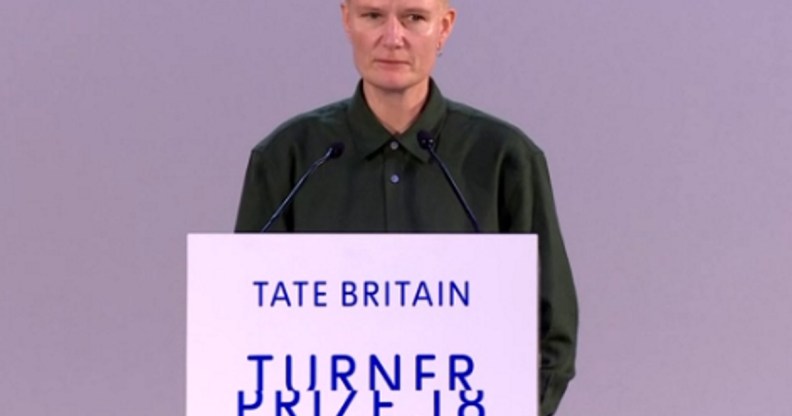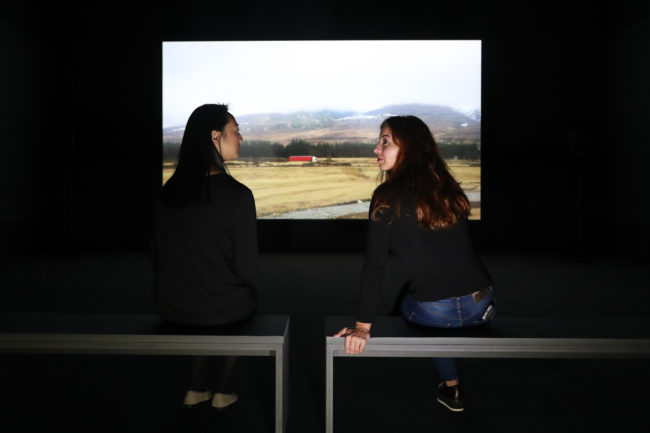Coming out film shot on iPhone wins £25,000 Turner Prize

Charlotte Prodger won the prize for films including Bridgit, which deals with queer issues (BBC News)
A film created by queer artist Charlotte Prodger that deals with coming out as gay in rural Scotland has won the prestigious Turner Prize.
Prodger, who was presented with the £25,000 award on Tuesday (November 4) by author Chimamanda Ngozi Adichie at London’s Tate Britain, said she was “quite overwhelmed” and “very touched” to be given the honour, BBC News reports.
Prodger earned the art award for two of her films that address queer issues, including one, the 33-minute-long Bridgit, which she recorded on her iPhone and includes the artist reading excerpts from her diary.
Charlotte Prodger speaks out about anti-gay hate
The 44-year-old filmmaker paid tribute to the LGBT community, saying: “The stories that I’m telling, although they’re mine and they’re personal, are stories that a lot of people—I guess queer people—have experienced.”
When asked if she was worried about the hate she might face over winning the prize, she said: “I’ve had it all my life,” The Irish News reports.
“That’s what queer people experience on a daily basis. How do I feel about it being modish?
“I don’t really feel like responding to people who make those allegations.”
“I will live on it, pay my rent on it, and maybe there will be a little treat.”
— Charlotte Prodger
In their assessment of the Glasgow-based artist’s work, the Turner Prize judges said they “admired the painterly quality of Bridgit and the attention it paid to art history.”
The chair of the jury, Tate Britain director Alex Farquharson, said the film “seems to make a lot of points for a younger generation.”
Farquharson added: “It deals with gender as unfixed, as something fluid, as something not always conforming to society’s norms.”
Charlotte Prodger says Turner Prize won’t change her
Prodger said that being given the award was “a different level of experience,” but that it wouldn’t change who she was, explaining that she wanted to “carry on being normal after this.”
“I like to go and kind of hide,” said the artist.
She added: “It’s amazing to win the Turner Prize but it’s not the be all and end all.
“It’s good to keep it real and have perspective on struggles… that other people are facing around the world.”

Charlotte Prodger’s Bridgit was shown extensively at Tate Britain before it was honoured (DANIEL LEAL-OLIVAS/AFP/Getty)
Prodger said it was “surreal” to win, and that the prize would help her with everyday costs.
“I will live on it, pay my rent on it, and maybe there will be a little treat,” she said.
She added that she was “not sure” what her artwork might mean to people who will watch it now that it has won the acclaimed honour.
“But one thing about doing the Turner Prize is it’s being a big learning curve for me; I’ve never put on a show with this amount of visitor numbers,” she added.
By winning the Turner Prize, Prodger follows in the footsteps of other queer artists like British abstract painter Sir Howard Hodgkin, who died last year, and gender fluid drag artist Grayson Perry.

